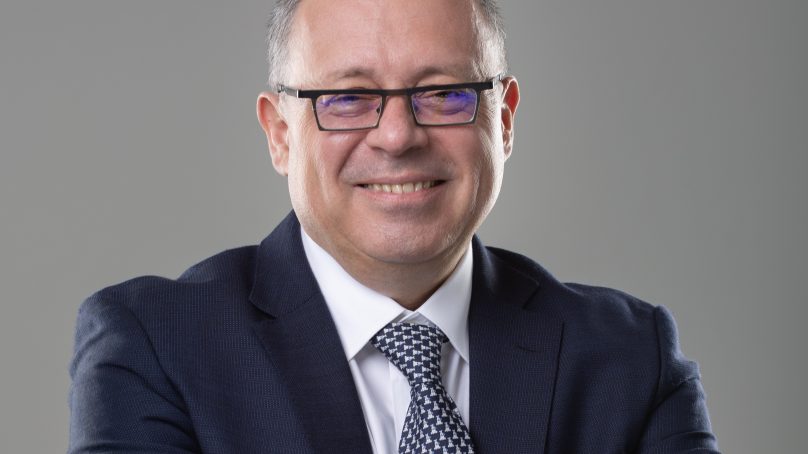Berthold Trenkel, COO of Qatar Tourism, has more than 20 years of experience in the travel industry. As a transformational leader spearheading Qatar’s operational and implementation strategy, he provides insights on what the future holds for Qatar and reflects on the overall impact of the 2022 World Cup on the country.
How did Qatar tackle the challenge of mass tourism during the World Cup 2022?
Recently released figures reveal that Qatar welcomed more than 1.4 million visitors during the FIFA World Cup™.
From Qatar Tourism’s (QT) perspective, our main priority was to make sure that at each touchpoint, every visitor had a truly memorable experience. To achieve this, we focused on various aspects, such as educating tourists on local culture, encouraging them to explore the latest tourism developments and get to know the locals.
To ensure that Qatar was ready to deliver on this promise, a 12-year program of preparations on an inspired and impressive scale transformed the country. Sweeping changes took place in terms of Qatar’s infrastructure. Emphasis was placed on public transportation, with a new, easily accessible, reliable, green and multimodal transportation system. This spanned brand-new tram and metro networks, a revitalized road system and improved rail lines.
Lusail, an entirely new city, was built on the outskirts of Doha as part of the preparations. The city alone includes enviable shopping destinations (Place Vendôme, Lusail Boulevard), many entertainment options (Al Maha Island, Lusail Winter Wonderland) and the architectural marvel that is Lusail Stadium, where the FIFA World Cup Qatar 2022™ final between France and Argentina was held.
In addition to Lusail Stadium, six other state-of-the-art stadiums were built for the event, and from 2020 to 2022, the leisure and hospitality sector witnessed fast-paced development. During this time, a series of hotels opened across the country, from ultra-luxury properties, such as Fairmont and Raffles Doha, to the adrenaline-fueled fun found at Fuwairit Kite Beach Resort.
Qatar’s vibrant shopping scene was bolstered by opulent new malls, such as Printemps, and various beach clubs were built for visitors and locals, including QT’s West Bay Beaches (B12, West Bay Beach, Doha Sands), three brand new, family-friendly beaches in the heart of the city, each with a distinctly different look and feel.
Alongside more traditional, brick-and-mortar accommodation choices, there were various temporary options on offer for guests, including luxury cruise ships, such as the MSC World Europa and MSC Poesia, and various desert camps.
A significant number of restaurants opened in Qatar ahead of the World Cup. What were the highlights of these openings and how will these restaurants boost Qatar’s F&B scene?
Last year’s FIFA World Cup™ tournament introduced an abundance of new culinary options across the country, from street food kiosks to Michelin-starred restaurants. However, it is worth noting that Qatar’s culinary scene has always been vibrant and diverse. In essence, last year’s openings have simply enhanced our offering and our reputation as a gastronomic force to be reckoned with across the region.
International delights can be found all across Doha. The recently opened Fiko restaurant, the first to open outside Turkey, and the French-Japanese coffee shop Café Kitsuné are both located in Msheireb Downtown Doha. Right by the sea, we’ve seen some premium restaurants establish a presence in the West Bay area. Serving exquisite dishes are Gaia by chef Izu Ani, Shanghai Me and the Italian favorite Cipriani. Additionally, the recently opened Al Maha Island in Lusail hosts a line-up of new fine-dining options, such as the award-winning restaurant Zuma, as well as Tatel, LPM and Nammos.
Qatar’s newly opened hotels have also significantly strengthened the country’s fine-dining scene. Highlights include Alba by Enrico Crippa at the magnificent Raffles Doha and the luxurious Latin charm of Curiosa by Jean-Georges at the Four Seasons Hotel Doha.
Many hotels also have various cuisines and eateries to offer guests under one roof. A prime example is The Ned Doha, which features seven restaurants that range from traditional Middle Eastern cuisine (Hadika) to world-class Italian (Cecconi’s).
How did the World Cup increase the tourism appeal of Qatar and the wider GCC region?
The legacy of an incredibly successful 2022 FIFA World Cup™ has placed Qatar firmly on the map as an international tourism destination.
Last year marked the very first time many football fans had visited the region. They were able to experience true Arabian hospitality, as well as Qatar’s natural beauty and rich heritage.
In addition, many of our 1.4 million visitors were from GCC countries, namely our neighbours from the Kingdom of Saudi Arabia.
From Souq Waqif to the National Museum of Qatar, football fans from all over the world visited our most cherished cultural hot spots, which were also regularly showcased to a global audience of millions. The Doha Corniche was a hive of activity.
In addition, the tournament’s seamless, safe and accessible atmosphere has solidified Qatar’s reputation globally. From fun activities at Lusail Winter Wonderland to rollercoaster rides at Doha Quest, there is plenty on offer for families.
What’s next for Qatar?
While the FIFA World Cup 2022TM marked a defining moment in the country’s history, Qatar is ready to deliver new, diverse and incredible experiences.
Our long-term goal is to welcome more than 6 million visitors a year by 2030. We plan to achieve this by continuing to host internationally renowned events, conferences and exhibitions, maintaining investment in our hospitality sector and through targeted and impactful marketing campaigns. Our strategy focuses on 15 priority source markets around the world, including the UK, Australia and China, with markets identified as best suited for point to point and/or stopover travel.
This year, Qatar will be home to flagship trade conferences and exhibitions; for instance, we are excited to host, for the second time, the Institute of Travel Tourism (ITT) Conference, taking place in June. Later in November, we will host the eighth edition of Hospitality Qatar, driving the conversation on redefined standards of hospitality, and the second edition of the Qatar Travel Mart, revealing the latest trends in the tourism sector. Qatar will also see 179 days of celebration when it opens the doors to the Expo 2023 Doha Qatar in October of this year, which will articulate a message of a green desert and a more sustainable future.
Continuing with its sporting legacy, Qatar will welcome several major international sports events, including the first Geneva International Motor Show to be held in Qatar, the Formula 1 Qatar Grand Prix and the MotoGP – Grand Prix of Qatar. Another prominent international tournament that we are looking forward to is the 2023 AFC Asian Cup, which we are hosting for the third time. And we just concluded the Visit Qatar GKA Freestyle Kite World Cup 2023, which named new world champions. It was held at the newly built Fuwairit Kite Beach Resort.
Another important focus for Qatar’s tourism industry moving forward will be the cruise sector. Between December 2022 – February 2023, we welcomed more than 150,000 cruise ship visitors to the brand new Grand Terminal at the renovated Doha Port, and 36 cruise ships from January – February 2023.









